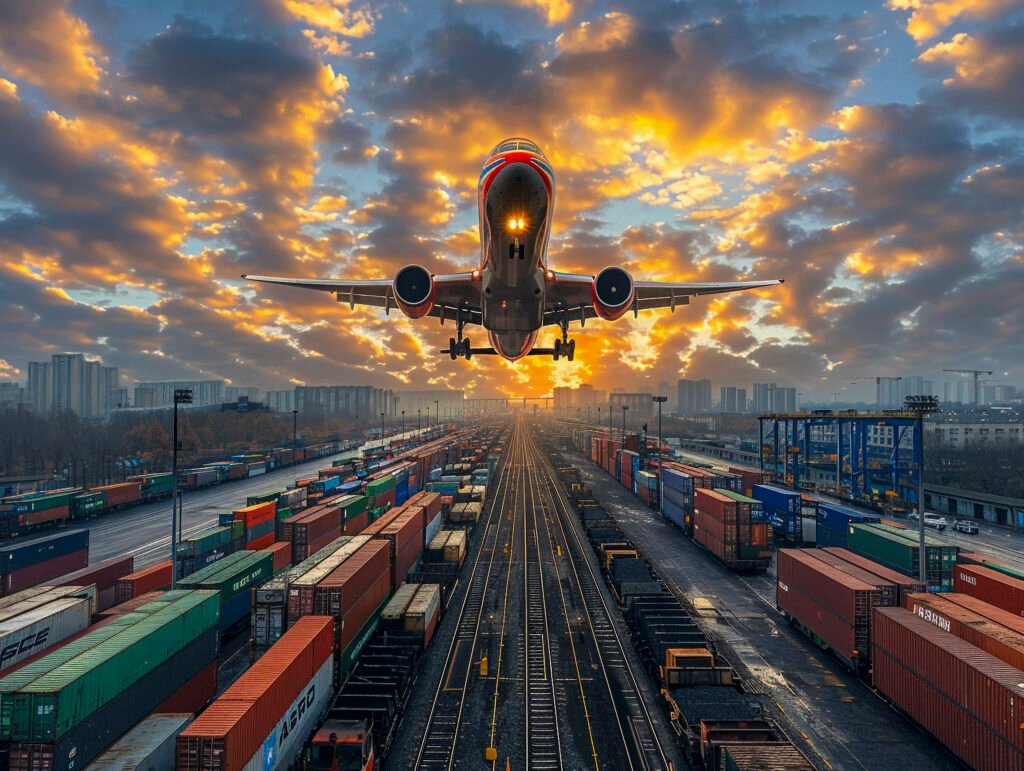Painful customs delays? Missed shipping deadlines? Confusing freight terms?
I get it. As someone running a factory in China, I’ve seen too many buyers lose money over small shipping mistakes.
Let’s end that. Here’s the ultimate guide that shows you exactly how to ship baby products from China to the U.S. without drama.
To ship baby products from China to the U.S., you need to choose the right shipping method (air, sea, or courier), prepare proper documents (like packing lists and certificates), understand U.S. customs regulations, and work with reliable freight forwarders. Avoid scams, delays, and overcharges by planning smartly.
This guide covers everything—from Incoterms and freight types to customs clearance and product certifications.
No fluff. Just everything you need to know if you’re buying baby products in bulk.
What are the most cost-effective ways to ship baby products?
The three main shipping options from China to the U.S. are:
1. Air Freight
- Speed: 5–10 days.
- Cost: Higher than sea freight but cheaper than couriers.
- Best For: Urgent shipments under 500 kg or high-value baby products like baby carriers.
📌 Use when you need to catch seasonal sales like Black Friday or Christmas.
👉 Compare air freight rates
2. Sea Freight (FCL or LCL)
Speed: 25–40 days depending on the port.
Cost: Most affordable for bulk orders.
Best For: Heavy shipments like baby playmats, maternity pillows.
FCL (Full Container Load): Your own container. Cheaper per unit.
LCL (Less than Container Load): Share with others. Good for smaller orders.
📌 We help customers consolidate from different suppliers before loading.
👉 Learn about LCL vs FCL shipping
3. Courier (DHL, FedEx, UPS)
- Speed: 3–7 days.
- Cost: Highest.
- Best For: Samples or very small shipments.
Avoid using express couriers for bulk orders—customs duties add up fast.
What documents do I need for U.S. customs?
When shipping baby products, especially in bulk, missing one document can cause a week-long delay. Here’s what you must prepare:
Must-Have Documents:
Commercial Invoice – With product descriptions, value, and Incoterms.
Packing List – Details of quantity, weight, size, packaging.
Bill of Lading / Air Waybill – Proof of shipment.
Certificate of Origin – Especially important for duty rates.
Product Certifications – EN, ASTM, and CPSIA for baby products.
👉 Check ASTM baby product standards
📌 At Baby Nice, all our baby carriers and blankets pass ASTM and EN testing, so our clients clear customs smoothly.
Do baby products need any special certification?
Yes. Baby products are highly regulated in the U.S. to protect consumers.
For example:
Baby Carriers – Must comply with ASTM F2236 and CPSIA.
Baby Blankets and Nests – Must pass flammability and labeling standards.
Maternity Pillows – May need fabric safety testing if marketed for infants.
📌 You need a Children’s Product Certificate (CPC) to prove compliance.
👉 Children’s Product Certificate (CPC) requirements – U.S. CPSC
We handle lab testing in China and send CPC docs with each order.
How do I choose the right Incoterm?
Choosing the wrong Incoterm can mess up your cost planning.
- FOB (Free On Board): We deliver to the Chinese port; you arrange the shipping.
✅ Best for experienced buyers. - CIF (Cost, Insurance, Freight): We handle everything until it reaches your port.
✅ Safer for new importers. - DDP (Delivered Duty Paid): We do EVERYTHING, including customs clearance in the U.S.
✅ Zero hassle—but higher cost.
We offer all three options at Baby Nice—many U.S. clients start with DDP and switch to FOB once confident.
👉 What are Incoterms? – ICC Guide
How can I avoid delays or shipping scams?
Good question. Many importers make these mistakes:
Common Problems:
Working with shady forwarders: They quote low but charge hidden fees later.
No product inspection: Defective items discovered only after arrival.
Late booking: Ships are full during peak seasons (Q3–Q4).
Our Tips:
- Use pre-shipment inspection services.
- Book space at least 2–3 weeks in advance.
- Ask for a freight cost breakdown upfront.
We partner only with certified freight agents and provide clients with tracking from day 1.
👉 Recommended inspection services – QIMA
Topic Related Questions?
What are the peak shipping seasons I should avoid?
How much import duty do I pay for baby products?
Can I ship baby carriers with batteries (like smart ones)?
How can I track my shipment door-to-door?
What’s the cheapest port to ship to in the U.S.?
Do I need a customs broker?
More Related Questions
What port should I ship to in the U.S.?
It depends on your warehouse location.
West Coast (LA, Long Beach) = Faster from China but may face congestion.
East Coast (NY, Savannah) = Slower, but sometimes cheaper overall.
👉 Port comparison in U.S. logistics – Freightos
How long does customs clearance take?
Usually 1–3 days if documents are in order.
Delays happen due to missing CPC or incomplete invoices.
Do I need insurance?
Yes, especially for sea freight.
We recommend Cargo Insurance to cover lost or damaged goods.
Cost is around 0.3% to 0.5% of shipment value.
👉 Marine Cargo Insurance Guide – Trade Risk Guaranty
Conclusion
Shipping baby products from China to the U.S. isn’t hard—if you know the rules.
Plan your shipping method, get certified, avoid shady forwarders, and always track your goods.
We help our clients do exactly that, every day.

